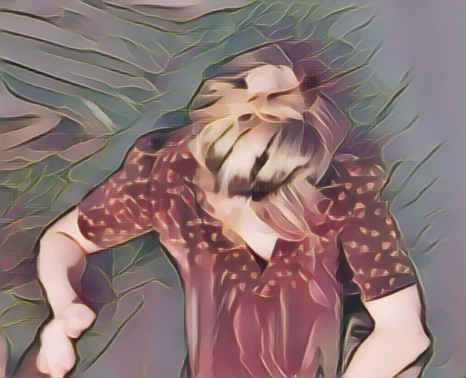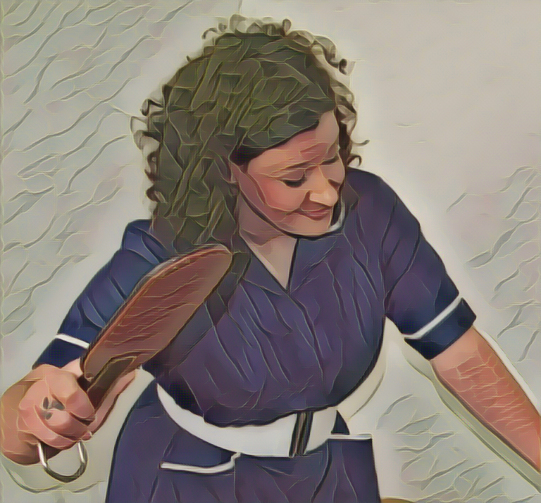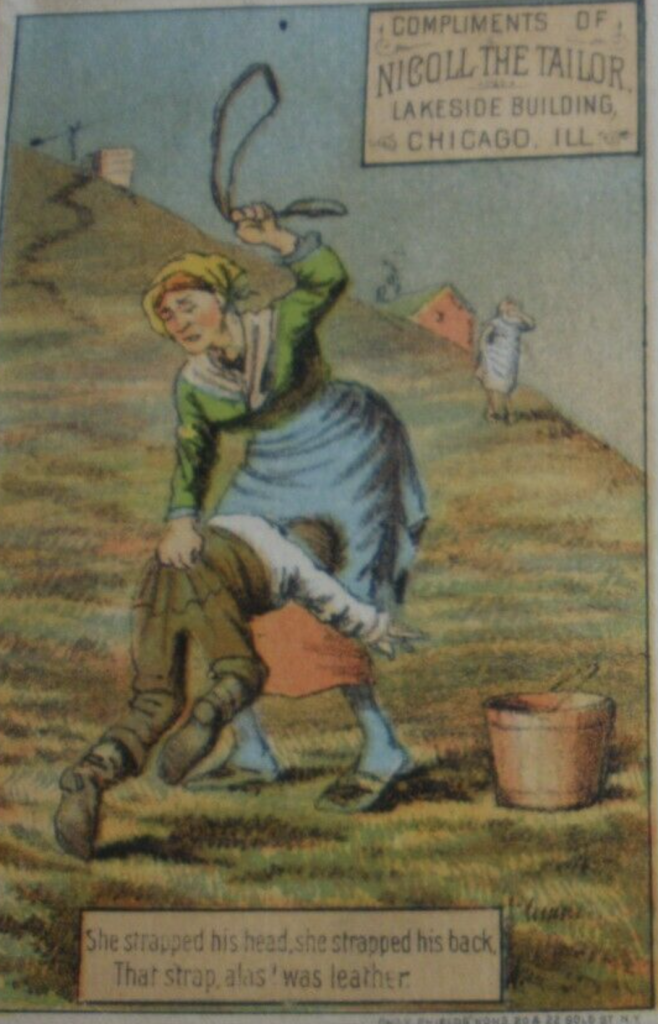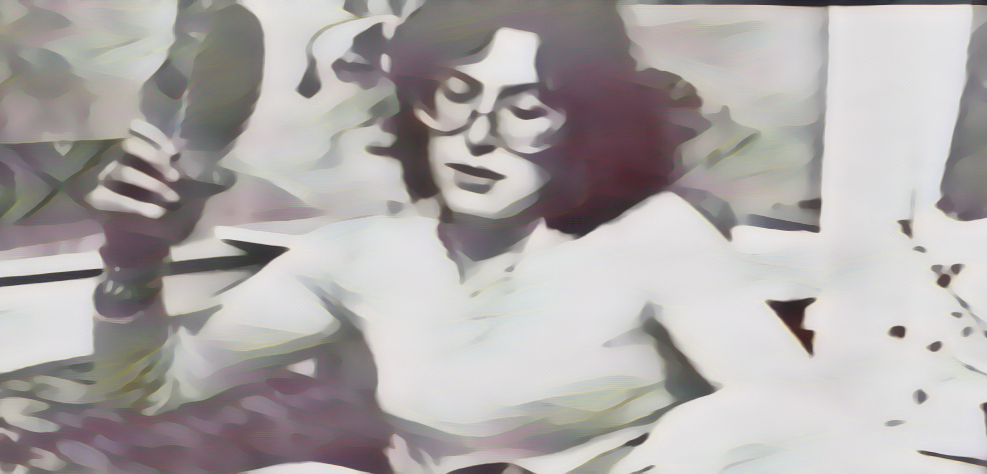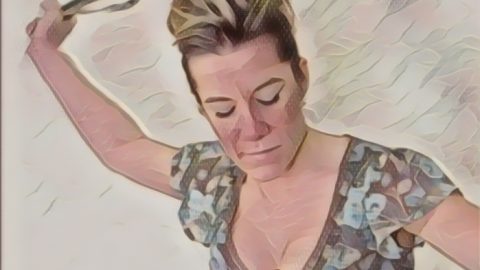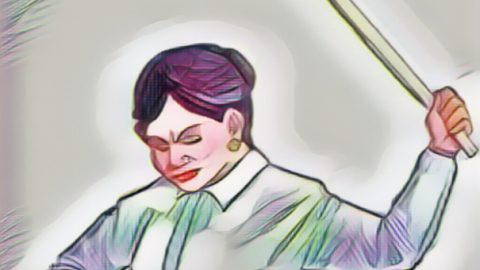My older sister, just a year ahead of me, was the very definition of straight-laced. Even as a child, she seemed to carry the weight of responsibility on her small shoulders. She was the sort who always wanted to take charge—organizing our games, assigning roles, and making sure everyone followed the rules. If we played “school” in the backyard, she was always the teacher, chalk in hand, her voice firm and authoritative. She had a seriousness about her, a sense of duty that set her apart from the rest of us. I remember how she’d line up our shoes by the door, or insist we tidy up before Mum got home, her brow furrowed in concentration. She approached every situation with a kind of gravity, as if the world might fall apart if she didn’t keep it in order.
One particular afternoon stands out in my memory, as vivid as if it happened yesterday. My parents had gone out for a few hours, leaving my sister in charge—a role she relished, her face set with the kind of responsibility only an older sibling can muster. She took her duties seriously, almost as if she were auditioning for adulthood. I remember her pacing the hallway, checking that the doors were locked and the kitchen was tidy, her arms folded and her lips pursed in concentration. She even made a list of chores for us, ticking them off with satisfaction as we completed each one.
I remember the garden that day: the grass cool and slightly damp beneath my bare feet, the air thick with the scent of cut grass and distant flowers. The sun was warm on my back as I kicked a battered football around, the shouts of my brothers echoing from the other side of the hedge.
(pause) Then, in a moment of careless excitement, I swung my leg back and gave the ball a mighty kick. Time seemed to slow as I watched it soar—higher and farther than I’d ever managed before—until it crashed, with a sharp, shattering sound, straight through the kitchen window.
The world seemed to freeze. For a split second, I stood rooted to the spot, my foot still in the air, the echoes of the impact ringing in my ears. The ball, now lying guiltily among the shards of glass on the kitchen floor, looked as stunned as I felt. The sunlight that had been streaming through the window was now fractured, casting jagged patterns across the linoleum. I could see the curtains fluttering in the sudden draft, and the smell of fresh grass was replaced by the faint, metallic tang of broken glass. My heart hammered so loudly I thought my siblings could hear it. I felt a cold wave of dread wash over me, my stomach twisting into knots as the reality of what I’d done settled in.
My brothers, who had been mid-laugh, fell silent, their faces pale and eyes wide with shock. For a moment, no one moved. The enormity of the accident pressed down on us all. I could already picture Mum’s face, the disappointment, the worry about money, the hassle of repairs. I wanted to run, to hide, to somehow turn back time and undo what I’d done. But there was no escape from the consequences.
My sister stormed out into the garden, her eyes blazing with a mix of anger and fear. She looked every bit the stern headmistress, her jaw set, her voice clipped and commanding. There was no hesitation—she took charge instantly, barking orders at my brothers to stay put and fixing me with a glare that brooked no argument. I could see the worry etched on her face—she knew, as I did, how tight money was for our family, and how much a new window would cost. But more than that, I saw her sense of duty kick in, her need to restore order and show she was in control.
Without a word, she grabbed my hand, her grip surprisingly strong, and marched me inside. The house felt suddenly colder, the laughter and warmth replaced by a heavy tension. As we passed the kitchen, I caught a glimpse of the damage: glass scattered everywhere, the football sitting in the middle of the chaos like a silent witness. I felt a lump rise in my throat, a mix of guilt and fear and shame. I knew this wasn’t just about a broken window—it was about trust, about responsibility, about the fragile balance of our family life.
She led me to the living room, her face set in a mask of determination. The air was thick with expectation, and I could feel my brothers’ eyes on my back as they hovered in the hallway, too curious and anxious to look away. My sister sat down on the edge of the old sofa, the springs creaking beneath her, and pulled me gently but firmly across her knee. I remember the rough texture of her jeans against my skin, the way her hand trembled just slightly as she reached for the slipper that always seemed to be nearby—our family’s unspoken symbol of discipline. She paused, her hand resting on my back, and I could hear her breathing, slow and steady, as if she was gathering her courage. For a moment, I thought she might let me off, but then she spoke, her voice low and serious: “You know why this has to happen.” There was no anger in her tone, only a heavy sense of duty.
(pause) The moment seemed to stretch on forever. My heart pounded in my chest, my face pressed against the faded fabric of the sofa, the scent of old cushions and dust filling my nose. My sister’s hand hovered for a second, and then, with a deep breath, she brought the slipper down with a sharp, echoing smack. The sound was startling, slicing through the silence of the house. The first swat stung, but it was the humiliation that hit hardest—a hot flush rising up my neck as I realized my brothers were just outside, listening to every sound. My sister’s hand was steady now, her resolve hardening with each stroke. She delivered each smack with a measured rhythm, not too hard, but firm enough to make her point. The slipper thudded against my shorts, the sensation sharp and immediate, but never cruel. She paused between each one, as if weighing the lesson she was trying to teach against the pain she might cause. I could feel her hand trembling slightly on my back, betraying her own discomfort. My cheeks burned, not just from the sting, but from the knowledge that my siblings were witnesses to my shame. I squeezed my eyes shut, willing myself not to cry, but the tears prickled anyway—not from pain, but from the overwhelming mix of guilt, regret, and the strange, aching love I felt for my sister in that moment.
The worst part wasn’t the smacking itself, but the humiliation of being punished by my sister in front of my brothers. Their wide eyes and awkward silence made my cheeks burn hotter than the spanking ever could. My sister, for her part, didn’t gloat or tease—she simply nodded, as if to say, “Order has been restored,” and sent me on my way. As I stood up, I caught a glimpse of her face—her eyes were shining with unshed tears, and I realized the ordeal had cost her something, too. She had carried out her duty, but it had weighed on her just as heavily as it did on me.
(pause) In the aftermath, the living room felt strangely quiet, the air heavy with the echoes of what had just happened. My brothers shuffled away, their faces a mix of relief and sympathy, unsure whether to comfort me or keep their distance. I slunk off to my room, the sting on my backside a constant reminder of my mistake, but it was the emotional weight that pressed down hardest. I lay on my bed, staring at the ceiling, my mind racing with embarrassment, guilt, and a strange sense of relief. I half-expected a second round when my parents returned, but to my surprise, nothing more was said. My sister must have decided I’d learned my lesson. Later, I overheard her quietly explaining the situation to Mum, her voice calm and measured, taking full responsibility for what had happened and for how she’d handled it.
That evening, as the house settled into its usual rhythm, I found myself thinking about my sister—not with resentment, but with a new sense of respect. The spanking had stung, but it was her willingness to shoulder the burden of discipline, to do what needed to be done even when it hurt her, that left the deepest mark. Our relationship changed after that day. There was a new understanding between us, a quiet bond forged in the fire of that difficult moment. She never mentioned the incident again, and neither did I, but from then on, I noticed the small ways she looked out for me—an extra biscuit slipped onto my plate, a reassuring squeeze of my shoulder when I was nervous, a silent nod when I needed encouragement. The incident became a family legend, retold with laughter at gatherings, but for me, it was a turning point—a lesson in responsibility, forgiveness, and the complicated love that binds siblings together. And whenever I think back, I remember my sister’s straight back, her determined face, and the way she always seemed to know what needed to be done—even if it meant being the grown-up before her time.
